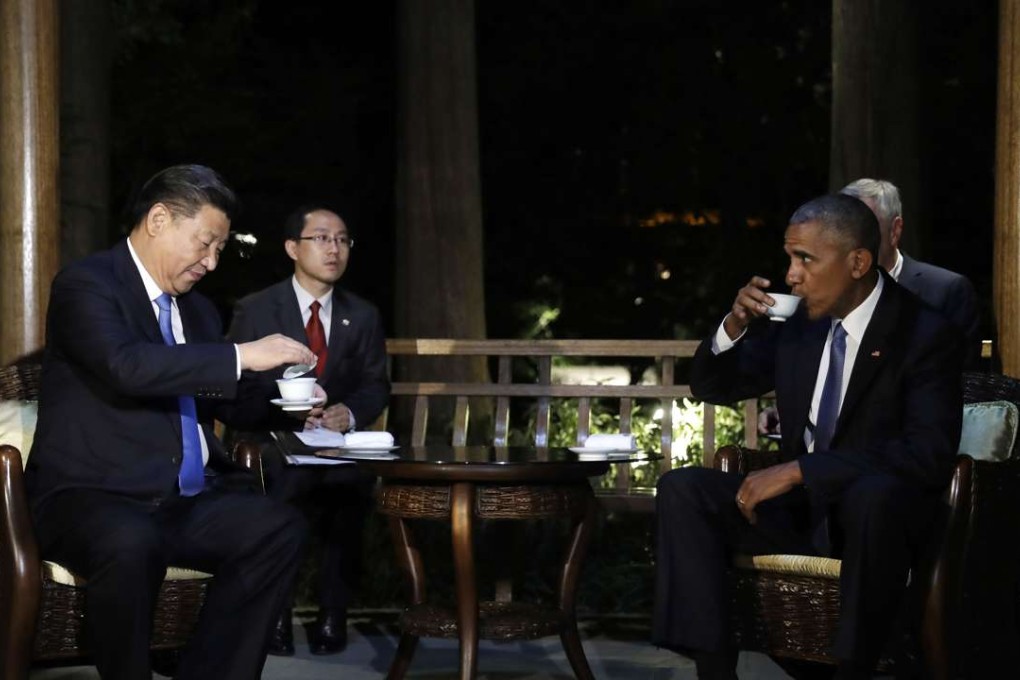Opinion | Obama staircase row is a non-event in the bigger scheme of Sino-US relations
Zhou Xin says airport glitches must not overshadow the notable gains made at the G20 summit, as goodwill is key when neither China nor the US can go it alone on pressing global issues

It’s rather surprising that the biggest talking point to come out of the G20 summit in Hangzhou (杭州) has not been how world leaders need to sit down together to fix the weak global economy, but the exchange of words between Chinese and US bureaucrats over airport security and media access.
According to reports from US journalists travelling with President Barack Obama, it could easily be read as a deliberate “snub” by China that Obama was deprived of the red carpet treatment as he descended from Air Force One. A Chinese official shouting at a US official that “this is our country, this is our airport”, captured on camera, and a security guard’s attempt to stop US National Security Adviser Susan Rice are additional signs of an increasingly assertive China that is set to clash with the US.

G20 ‘staircase snub’ for Obama was United States’ decision, reveals Chinese official
For many Chinese security and diplomatic officials, who had been working for months towards a flawless G20 summit, the big fuss about the glitches, however, is another sign of American arrogance and, to some conspiracy theorists, Washington’s inherent hostility towards Beijing. They claim the US was not willing to see a successful summit in China – an event President Xi Jinping (習近平) attached great political importance to, in order to display a rising power’s leadership over the global economy.

Multimedia interactive special: historic G20 meeting in Hangzhou - the leaders, their agenda and the redrawing of the world’s economic order
The facts have gradually emerged. China did, it seems, prepare a proper staircase for Obama at the airport, as it did for every arriving state leader. That included Japanese Prime Minister Shinzo Abe, who is more unpopular in Beijing than Obama, and South Korean President Park Geun-hye, with whom China is still very angry over her decision to deploy a US anti-missile system. Even the incident where Rice was stopped by a Chinese guard seemed reasonable from China’s point of view.
“When Susan Rice crossed a line, with no identification badge on her, should she be stopped?” a Chinese official asked rhetorically when asked to comment on the incident. “Would it be reasonable to ask every Chinese security personnel on the ground to recognise [her] face?”

